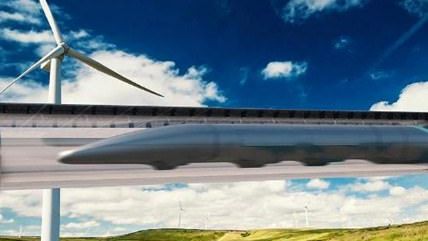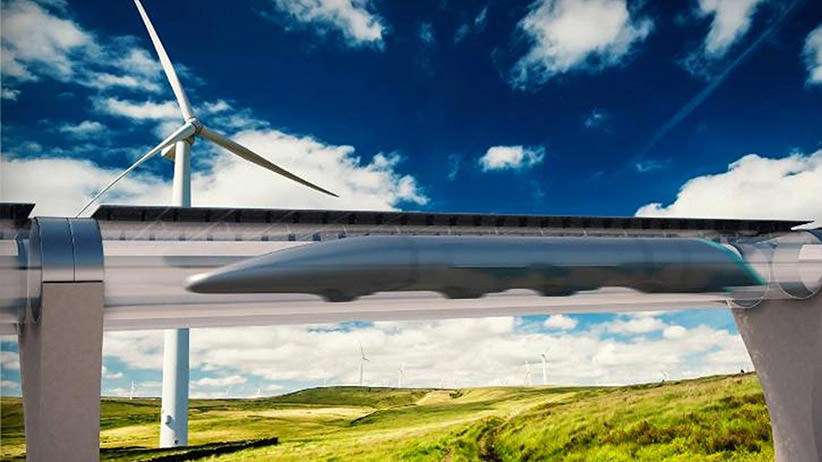Hyperloop Project Inches Closer to Becoming a Real Thing
Two tech companies offer services to develop prototype.


Hundreds of science experts and engineers have been joined by two more tech firms in their efforts to make Futurama real—or real-ish. Planning for a prototype for the Hyperloop, a transportation system that would stick people in vehicles in pneumatic tubes to travel at speeds faster than sound, continues in California with the addition of a design engineering company and a vacuum tech company. They are offering their services and some employees in exchange for stock options in the company developing the prototype.
Wired took note of the latest developments in this project pushed forward by Elon Musk:
The startup plans to start construction on a full-scale, passenger-ready Hyperloop in 2016. The prototype will run 5 miles through Quay Valley, a planned community rising from nothing along Interstate 5, midway between San Francisco and Los Angeles. Ahlborn says he's got several potential investors.
The startup also announced today that it has 400 "team members" working on the project. They aren't employees, but women and men with regular gigs at places like NASA, Boeing, and SpaceX, who spend their spare time on Hyperloop in exchange for stock options. It's easy to see why they want to get involved: It's the chance to work on a truly revolutionary form of transportation—even if some remain convinced it's never gonna happen.
We've been interested in the Hyperloop at Reason because not only is this innovation effort privately funded so far, Hyperloop advocates are deliberately thumbing their noses at the overpriced, taxpayer-soaking, cronyist high-speed rail proposal California has been pushing forward. If it works, Musk and Hyperloop Transportation Technologies CEO Dirk Ahlborn say it will be both cheaper and faster (30 minutes to travel between Los Angeles and San Francisco) than high-speed rail. It could even been environmentally friendly, relying on wind and solar power to operate. If it all works. That's a big if.
Below, watch ReasonTV's interview with Ahlborn:


Show Comments (81)